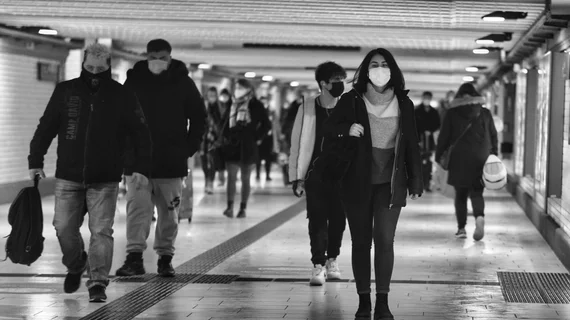Florida judge strikes down mask mandate on transportation
A U.S. District judge in Florida struck down the federal mask mandate for airplanes and other public transportation on April 18.
The ruling ends a nearly two-year mandate for patrons to wear masks when traveling in an effort to reduce the spread of the COVID-19 virus. U.S. District Judge Kathryn Kimball Mizelle declared the mandate unlawful and beyond the powers of the U.S. Centers for Disease Control and Prevention (CDC).
The decision came just days after the CDC announced two travel-related updates based on close-monitoring of the COVID-19 landscape in the U.S. and abroad. The agency stated it was currently monitoring the potential impact of the rise of COVID-19 cases in the U.S.––cases have been rising since early April. The Omicron subvariant BA.2 currently makes up more than 85% of cases in the U.S. Given the rise in cases, the CDC extended the mask mandate to at least May 3.
However, Judge Mizelle’s decision cut that deadline short. Many major airlines, including United Airlines, Delta, Southwest, American Airlines and more, released statements that customers and employees would no longer need to wear masks when traveling on their planes.
After the ruling was made on Monday, the Transportation Security Administration (TSA) confirmed it would no longer enforce the rule. The CDC also confirmed the rule is currently not in effect due to Mizelle’s ruling. Some localities, including Chicago, are keeping their own rules requiring masks on public transportation.
The ruling stems from a lawsuit brought by the Health Freedom Defense Fund, an advocacy group based in Wyoming, in July 2021.
The CDC also announced the launch of a new center for forecasting and outbreak analytics, the Center for Forecasting and Outbreak Analytics (CFA). The CFA will use data, models, and analytics to enable timely, effective decision-making in response to public health threats for CDC and its public health partners. The new center is a move to improve outbreak response using infectious disease modeling and analytics.
Related COVID-19 Content:
Q&A: New ACC President Edward Fry discusses the past, present and future of cardiology
AI predicts COVID prognosis at near-expert level using CT scoring system
Imaging suggests blood clots are more common in COVID than pneumonia
AHA asks Congress to provide more COVID-19 funds

